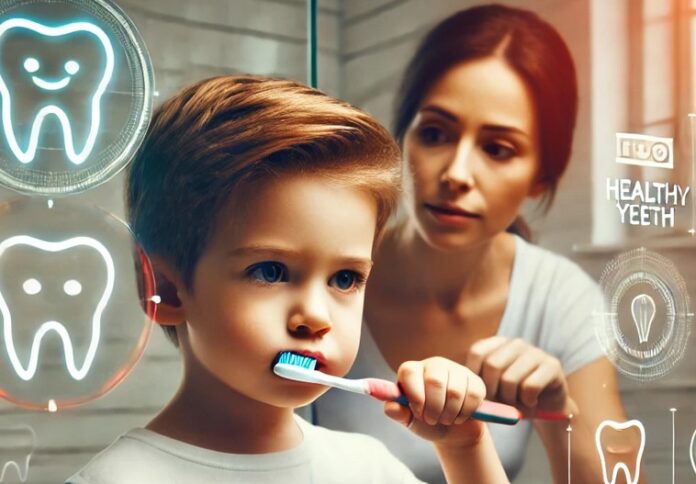As a parent, you strive to protect your child from harm—but did you know that something as simple as skipping brushing after meals could put them at risk for serious health issues later in life? Poor oral hygiene is more than just a gateway to cavities; it’s a potential pathway to systemic inflammation and even cancer. Recent research is revealing alarming connections between oral health and long-term risks, making it essential to act now while your child’s habits are still forming.
The Hidden Dangers of Poor Oral Hygiene
What happens when your child doesn’t brush regularly after meals? Harmful bacteria in the mouth multiply, creating plaque and inflaming the gums—a condition known as gum disease. While this might seem like a minor issue, it’s far from it.
Here’s why you should be concerned:
- Gum disease has been linked to higher risks of oral, throat, and even pancreatic cancers later in life.
- Inflammation caused by poor oral hygiene can spread to other parts of the body, potentially setting the stage for chronic illnesses.
- Studies have shown that children with early signs of gum disease are more likely to experience severe oral and systemic health issues as adults.
This isn’t just about dental health; it’s about giving your child the best possible chance at a long, healthy life.
Why Brushing After Meals Is Non-Negotiable
Brushing after every meal removes food particles, bacteria, and acids that can damage teeth and gums. When this simple habit is skipped, harmful substances linger, creating an environment for decay and infection.
By encouraging your child to brush after meals, you’re not just protecting their teeth—you’re reducing the likelihood of bacteria entering the bloodstream and triggering systemic inflammation, which researchers have linked to serious health risks, including cancer.
The Age to Start: 4-12 Years Old
This age range is critical for developing habits that stick. Children in this stage are old enough to understand the importance of brushing, and it’s when their oral health practices are most likely to impact their future well-being.
The Cost of Inaction
Here’s a sobering thought: Poor oral health in childhood doesn’t just affect dental visits; it could set the stage for a lifetime of health challenges. Research shows that many adults who suffer from chronic gum disease trace the roots of their condition to poor brushing habits in early years. This includes increased risks for:
- Chronic inflammation.
- Cardiovascular disease.
- Certain cancers.
Can you afford to wait?
Take Action Today
To protect your child’s future health, start now:
- Prioritize Post-Meal Brushing: Set a family rule that everyone brushes after every meal.
- Visit the Dentist Regularly: Professional cleanings and check-ups can catch problems early.
- Focus on Education: Explain to your child how brushing protects not only their smile but their overall health.
Remember: The habits your child forms today can save them from serious health risks tomorrow. Don’t let something as preventable as poor oral hygiene jeopardize their future. Take control of their health by making brushing after meals a priority now.




